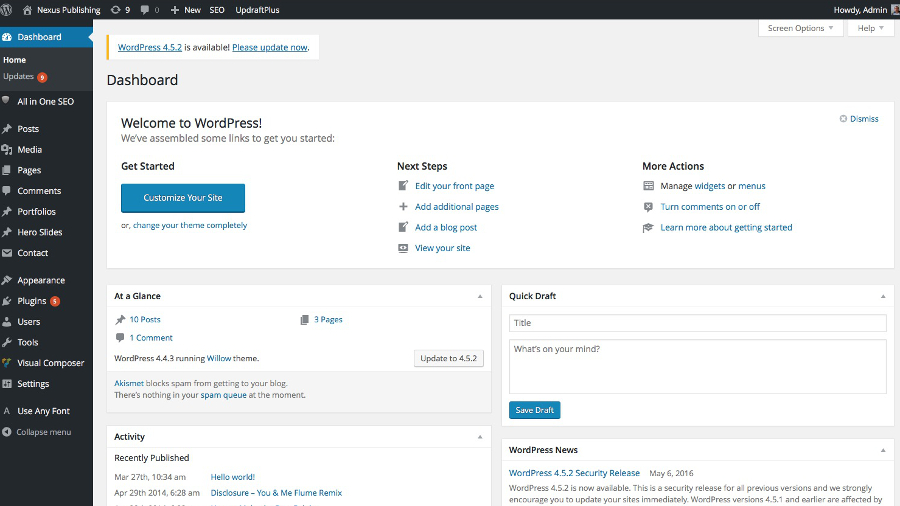Content management systems: A business buyer's guide
How to choose the right CMS for your business

Note: Our CMS business buyer's guide has been fully updated. This feature was first published in November 2012.
Content is still king when it comes to developing your services and products. Content, though, can be created in many forms. From websites to eBooks, what's needed to ensure all these assets are working as hard as they can for your company is a way to manage them efficiently. That's where a comprehensive CMS (Content Management System) comes into its own.
There are a number of CMS options to choose from – each aimed at a particular type of content:
Website CMS
Digital publishing
Digital Asset Management (DAM)
All of these CMS's have easy to use interfaces that are ideal for helping your business manage the content it produces. WordPress is arguably the leader in this field, as it has been evolving for several years and remains completely free to use.
Other options can be more suited if you have specific needs, for example, Magento is ideal if you have an e-commerce enabled website, as the CMS includes specialist tools to make creating new content for your online store fast and easy to achieve. There are many systems to help you manage digital publications for in-bound marketing, and lastly if you have masses of images, text, video and graphics, a DAM can be a godsend.
When choosing a CMS ask yourself these questions:
How sophisticated is your content?
Large e-commerce websites or a simple blog can both be managed with a CMS. It's important to audit your precise needs now and what these may be in the future. The CMS you choose should offer the tools your business needs now, and allow a level of expansion.
Sign up to the TechRadar Pro newsletter to get all the top news, opinion, features and guidance your business needs to succeed!
How much can you afford?
WordPress is free, but is this the best CMS for your business? Many of the leading e-commerce CMS platforms are hosted and subscription-based. Look closely at the features on offer for the various levels of subscription the CMS boasts, and then match these to your business needs.
Do you need high levels of security?
If your content management system will handle materials that relate to personal customer details, the CMS you choose should offer high levels of security to keep this information safe from attack. And think about who in your business will have access to the CMS. Strong password authentication could be needed to ensure internal security across your business when the CMS is being used.
What level of support do you need?
Using a CMS to just update a blog your business maintains probably won't need detailed support. However, if your CMS is driving a large e-commerce site, prompt technical support may be needed when things go wrong. In this situation, look closely at the support clause on the SLA (Service Level Agreement) your business has with the CMS vendor.
Will you need to use plugins or extensions?
One of the reasons WordPress has become the world's most popular CMS is because of the thousands of plugins available that enable new features to be added with just a few clicks of the mouse. Look closely at a plugin you want to use and if your site will rely on this, consider whether it will continue to be supported and updated.
Does your team need access to the CMS?
One of the great things about all CMS offerings is the flexibility that they boast. Once the system is set up anyone can access it. Your business needs to ensure it has policies for who can use the CMS and processes to ensure content is generated within your business policy guidelines. This will avoid any content you didn't authorise becoming available to your customers.